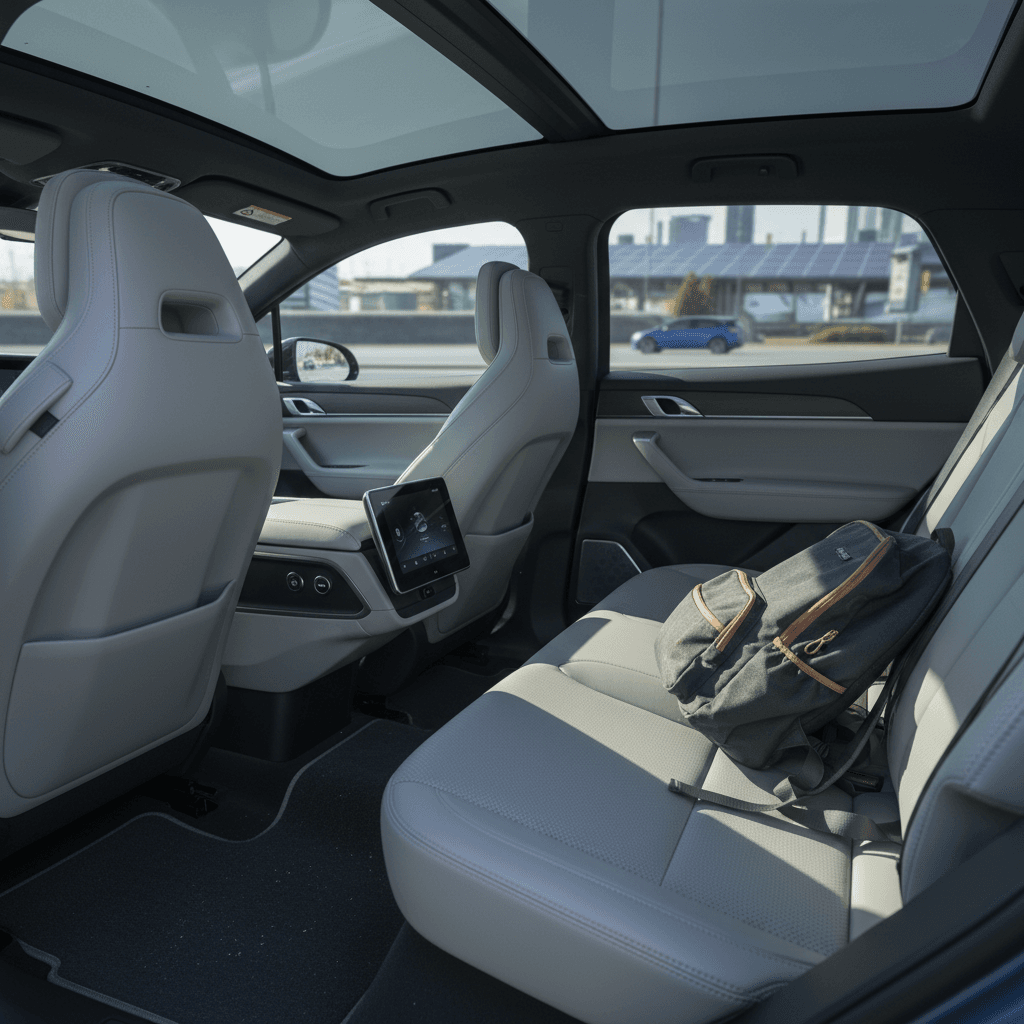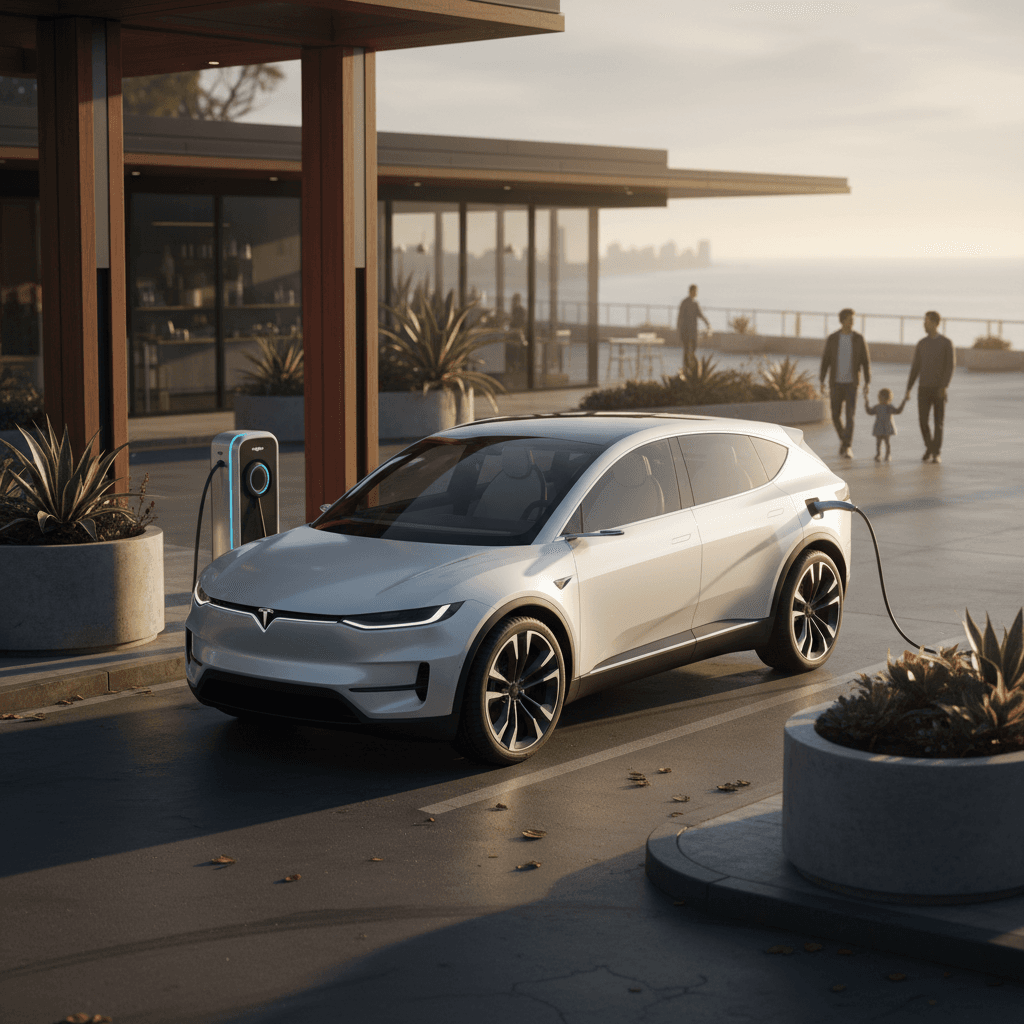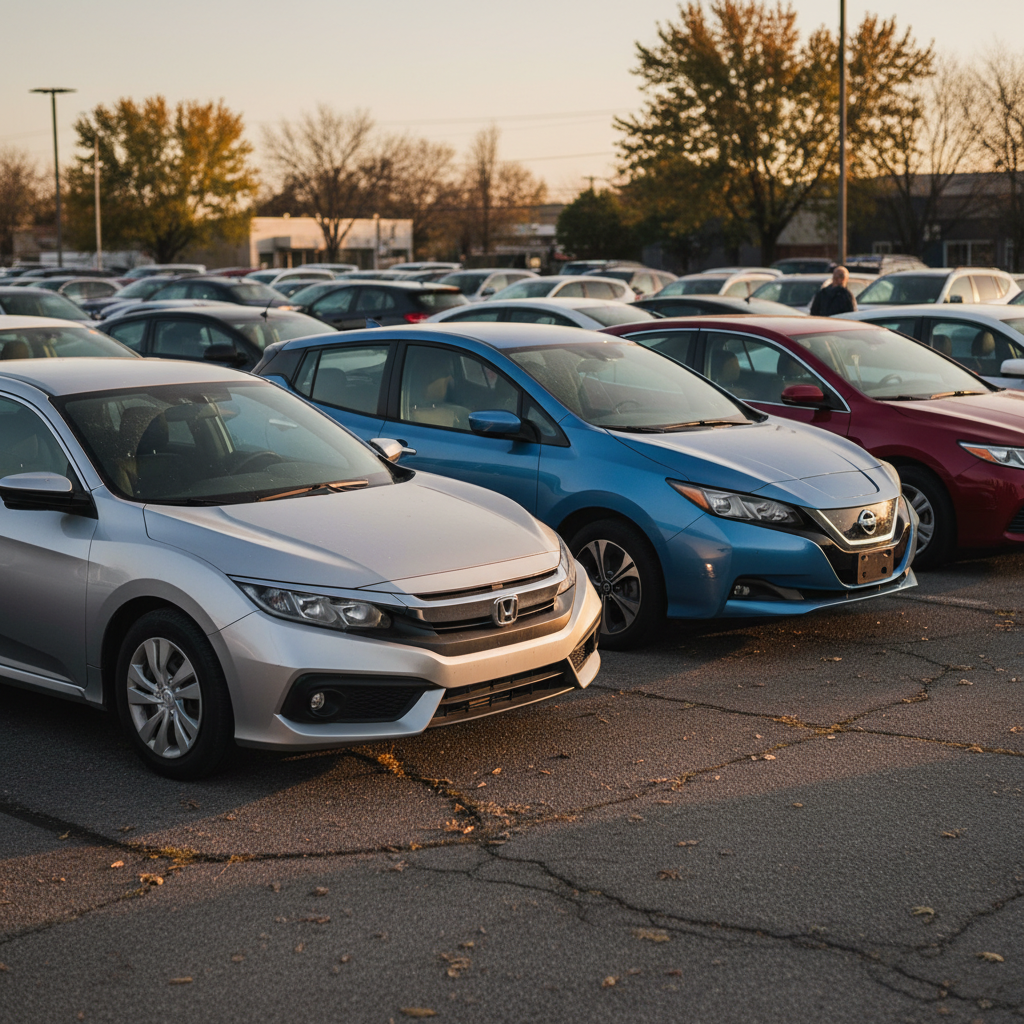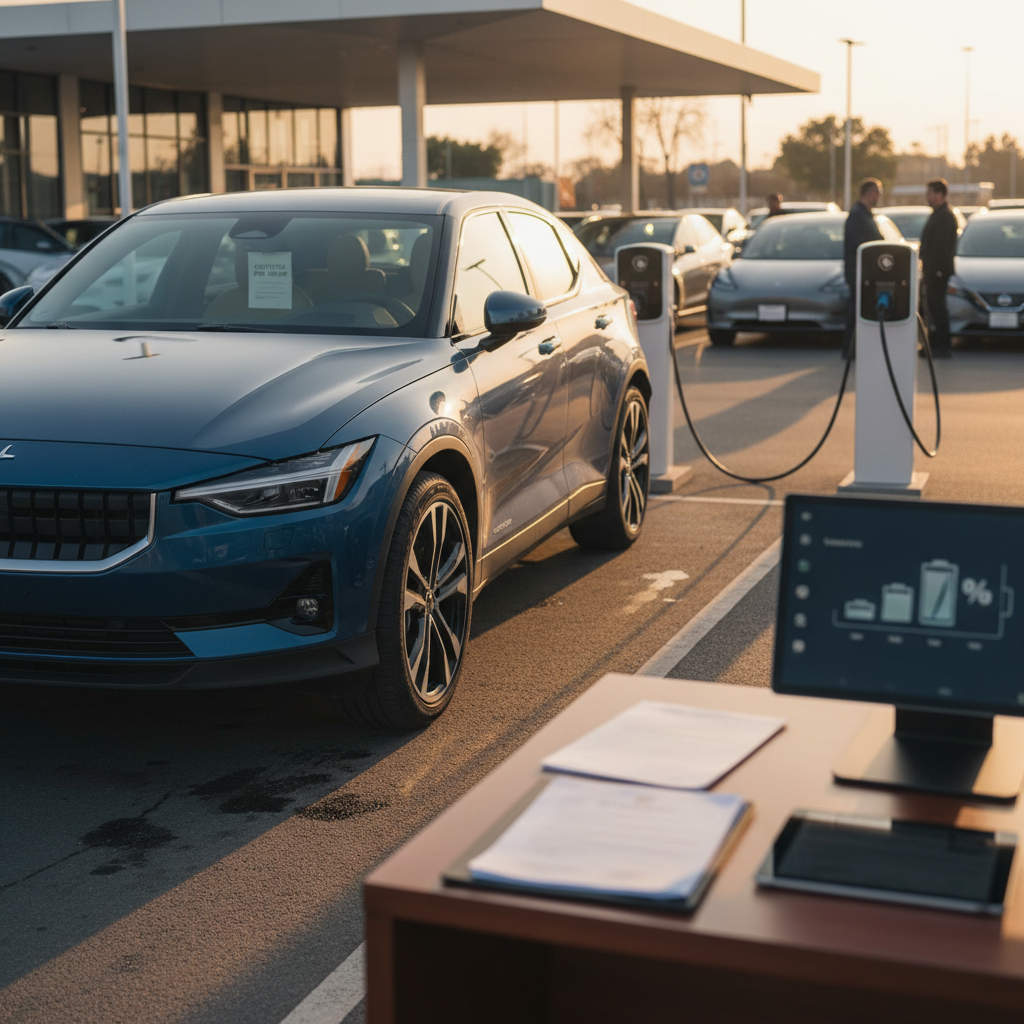If you’re shopping for the best used electric SUV in 2025, you’re in a sweet spot. Prices on nearly new EV SUVs have dropped sharply, range and charging tech have improved, and more models than ever qualify as genuinely practical daily drivers. The challenge isn’t finding options, it’s understanding which used electric SUVs actually fit your life, budget, and comfort level with new technology.
Used electric SUVs: the cliff-notes version
Why used electric SUVs are so attractive right now
Why the used electric SUV market is heating up
Two trends are working in your favor. First, EV adoption has accelerated, especially in the SUV segment, so models like the Tesla Model Y, Ford Mustang Mach‑E, Hyundai Ioniq 5, and Kia EV9 are now common on the used market. Second, rapid tech improvement means some first owners trade out early, pushing down used prices while leaving a lot of life and warranty on the table for the next buyer.
Think total cost, not just sticker price
Quick picks: best used electric SUVs by buyer type
Best used electric SUV picks for common scenarios
Match the SUV to how you actually drive, not just the spec sheet.
Best all-around used electric SUV
Tesla Model Y (Long Range or AWD)
- Outstanding mix of range, performance, cargo space and charging network access.
- Huge used supply means lots of choice on mileage, options and price.
Best family & 3-row option
Kia EV9
- One of the few three-row electric SUVs; great for growing families.
- Fast DC charging and big, comfortable cabin.
Best value commuter SUV
Hyundai Ioniq 5
- Spacious interior and smooth ride with distinctive styling.
- Excellent 800‑volt fast charging; often priced below similar Teslas on the used market.
Best road-trip partner
Tesla Model Y or Ford Mustang Mach‑E (extended-range)
- Both offer 250–320 miles of range with access to major DC fast-charging networks.
- Model Y has an edge on cargo space; Mach‑E offers a more traditional interior feel.
Best budget-friendly pick
Volkswagen ID.4 or Nissan Ariya
- Often cheaper than segment leaders with similar practicality.
- Look for models with the larger battery and heat pump if you live in colder climates.
Best upscale used EV SUV
Cadillac Lyriq or Rivian R1S
- Lyriq delivers quiet comfort and strong range at attractive used prices.
- R1S is for drivers who want off-road capability and unique design, and are willing to pay for it.
Don’t chase the rarest trim
Top used electric SUVs: expert shortlist
Let’s look at the used electric SUVs that consistently rise to the top when you balance range, reliability, space and price. Think of this as a shortlist, not a one‑size‑fits‑all ranking, your best choice depends on how and where you drive.
Core used electric SUV comparison
Approximate specs for popular trims. Always verify numbers for the exact model year and configuration you’re considering.
| Model | Typical used price (US) | Approx. range | Seats / size | Notable strengths |
|---|---|---|---|---|
| Tesla Model Y (Long Range) | $25k–$35k | Up to ~320 mi | 5 (compact-midsize) | Top-tier range, massive charging network, great cargo room |
| Hyundai Ioniq 5 | $23k–$33k | ~240–300 mi | 5 (compact) | Comfortable, super-fast DC charging, distinctive design |
| Kia EV9 | $40k–$55k | ~270–304 mi | 6–7 (midsize 3-row) | Real three-row space, fast charging, family-focused features |
| Ford Mustang Mach‑E | $22k–$32k | ~240–320 mi | 5 (compact) | Fun to drive, familiar Ford interface, good range options |
| Volkswagen ID.4 | $19k–$28k | ~209–291 mi | 5 (compact) | Value pricing, comfortable ride, simple controls |
| Nissan Ariya | $22k–$30k | ~216–289 mi | 5 (compact) | Quiet cabin, strong driver-assist tech, good all-weather manners |
| Cadillac Lyriq | $35k–$45k | Up to ~314 mi | 5 (midsize) | Luxury feel at used prices, smooth and quiet, long range |
| Rivian R1S | $55k–$70k | ~260–390 mi | 7 (midsize 3-row) | Adventure-ready, big power, unique design and interior |
EPA-rated range figures are manufacturer or test-estimate values; real-world range will vary with speed, weather and load.
If you want a simple rule of thumb: Model Y and Ioniq 5 are the default answers for most two‑row SUV shoppers; EV9 is the go‑to for most three‑row buyers. Everything else competes by offering a lower price, more luxury, or a more distinctive personality.

Range, charging and ownership costs: what really matters
When people talk about the “best” electric SUV, they usually start with range. That matters, but it’s only one piece of the puzzle. For used EVs, you also want to think about how you’ll charge, what your real-world energy costs will be, and whether a slightly cheaper vehicle with a bit less range might actually fit your life just fine.
How much range do you really need?
- 200–230 miles: Fine for most commuters and families who rarely road-trip and can charge at home.
- 240–280 miles: Comfortable buffer for weekend trips, heavy HVAC use, or winter driving.
- 300+ miles: Best if you road‑trip often, tow, or live in harsh climates with big range swings.
If you drive 40–60 miles a day and charge at home, chasing maximum range rarely pays off as much as you think.
Charging speed & network access
- Home Level 2 (240V): The real backbone of EV ownership. Aim for a vehicle that can take at least 7–11 kW AC charging.
- DC fast charging: Look at peak charge rate (kW) and more importantly, how long it holds a strong rate from 10–80%.
- Network access: Many non‑Tesla SUVs now access the Tesla Supercharger network, in addition to public networks like Electrify America and EVgo.
For most owners, convenient home charging beats the fastest possible public charging every time.
Home charging is your superpower
Battery health and warranty coverage on used EV SUVs
The battery pack is the heart of any electric SUV, and the part most shoppers worry about on the used market. The good news is that modern packs are proving more robust than many early skeptics expected, and they’re backed by long warranties. The key is verifying the health of the specific vehicle you’re considering.
Key battery questions to answer before you buy
1. What’s the remaining battery warranty?
Most mainstream EV SUVs carry <strong>8‑year/100,000‑mile</strong> battery warranties (sometimes longer). Check the in‑service date and mileage to see how much coverage is left, this can be a deciding factor between two similar vehicles.
2. How has the battery been fast-charged?
Occasional DC fast charging is fine, but a heavy diet of it, especially in very hot climates, can accelerate degradation. Ask the seller, and look for vehicles whose history shows mostly home or workplace charging.
3. What’s the current usable capacity or state of health?
Some brands can display battery health in the infotainment system; others require a scan tool or third‑party test. A professional health report is worth it on any higher‑priced used EV SUV.
4. Any battery or high-voltage system recalls?
Check recall history by VIN. Some early EVs had battery-related recalls and software updates; you want a vehicle that’s fully up to date.
5. Does it still deliver the expected range?
On the test drive, start with a known state-of-charge and compare the dash-estimated range to the original EPA rating. A modest drop is normal; a dramatic one is a red flag.
How Recharged helps with battery confidence

Used EV SUV reliability: what the data tells us
Reliability in the EV SUV world is a tale of two stories. The good news: fewer moving parts than gas SUVs mean no oil changes, no exhaust systems and fewer mechanical wear points. The challenge: early software, infotainment and charging hardware can be temperamental, and some models have struggled more than others.
- Recent surveys have highlighted the Tesla Model Y as one of the most reliable electric SUVs, with a very low percentage of owners reporting serious issues.
- Some mainstream brands have had charging-system or electronics hiccups on early Ioniq 5 and EV6 models, often addressed via software updates.
- Luxury and newer startups (like Rivian) can deliver incredible performance but may show more early-life glitches than simpler mainstream models.
Software can make or break the experience
Inspection checklist before you buy a used electric SUV
Whether you’re buying from a private party or a retailer, a systematic inspection will help you avoid expensive surprises. You can use the checklist below yourself or treat it as a script when you talk with a seller or inspector.
Used electric SUV inspection checklist
Confirm charging hardware and cables
Verify that the original charging cable(s), adapters and any home wall connector being sold with the vehicle actually work. Plug into a Level 2 charger and confirm the car charges as expected.
Scan for trouble codes
Have a technician with EV experience scan for diagnostic trouble codes, especially in the battery, charging system and driver-assistance modules.
Inspect tires and brakes
Electric SUVs are heavy and have strong acceleration, which can wear tires and brakes faster. Uneven tire wear can signal alignment issues or aggressive driving.
Check for accident or flood history
Run a history report and look closely for underbody damage, corrosion, or signs of water intrusion, these are especially problematic on high-voltage vehicles.
Test all driver-assist features
On a safe road, test adaptive cruise, lane-keeping, parking sensors and cameras. These systems are expensive to fix if they’re not working correctly.
Evaluate comfort and practicality
Sit in every seat, fold the rear seats, and load the cargo area with real items if you can. A vehicle that looks great on paper but doesn’t fit your family’s gear will quickly fall out of favor.
Avoid guesswork on high-voltage repairs
How buying a used electric SUV with Recharged works
Electric SUVs are different enough from gas models that having a specialist in your corner pays off. That’s where Recharged comes in, we’re built from the ground up around used EVs and plug‑ins, with tools that remove a lot of the guesswork from the process.
What Recharged adds to your used EV SUV search
More transparency, less stress, and no pressure to figure out EV ownership alone.
Recharged Score battery diagnostics
Financing built for EVs
Trade‑in, instant offer or consignment
Nationwide delivery
EV‑specialist support
Experience Center in Richmond, VA
Frequently asked questions about the best used electric SUVs
Used electric SUV FAQs
Bottom line: choosing the best used electric SUV for you
The “best used electric SUV” isn’t a single model; it’s the one that fits your range needs, family space, budget and comfort with technology. For many buyers, that means a Tesla Model Y or Hyundai Ioniq 5 for two‑row practicality, or a Kia EV9 if you need three rows. Value hunters might gravitate toward a used Volkswagen ID.4 or Nissan Ariya, while luxury‑leaning shoppers will find compelling deals on the Cadillac Lyriq and adventurous Rivian R1S.
What matters most is that you go into the purchase with clear expectations about range, charging, battery health and warranty. If you’d rather not decode all of that alone, browsing used electric SUVs on Recharged gives you transparent battery-health reporting, EV‑savvy support, financing, trade‑in options and even nationwide delivery. That way, when you sign on the dotted line, you’ll know you’re getting the right electric SUV for how you actually live, not just the one with the flashiest spec sheet.



